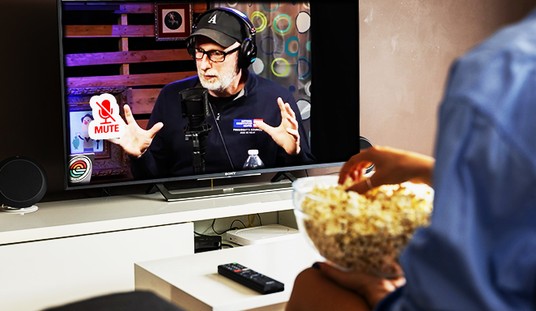Rebecca Rambo is a student midwife, doula, and survivor of sexual assault whose viral Facebook post about giving birth in a hospital is sending shockwaves through the birth community. When she became pregnant with her fourth baby, she planned to have a peaceful home birth with a midwife. As an experienced doula and already an experienced mother three times over, she felt confident in providing herself with her own prenatal care until 28 weeks when she hired a midwife. While many women are more comfortable in hospitals with pain-relieving drugs, there is a movement for natural birth experiences that more and more women are seeking out. Rambo helps women who want a natural experience and hoped to have her fourth child in a nurturing at-home environment. That plan went out the window when an emergency struck.
At 33 weeks, Rambo suffered a membrane rupture and had to go to the hospital, abandoning her plans for a home birth. She went to UCHealth Poudre Valley Hospital in Fort Collins, Colo., and was interviewed by the intake nurse. Rambo reports she informed the nurse that as an assault survivor she did not want any men in her room examining her. Rambo says the staff categorized her as an “unassisted pregnancy,” which she believes prejudiced the hospital personnel against her from the beginning. “I expected them to call CPS on me,” Rambo told PJ Media. “I believe birth works and I’ve spent a decade around birth,” she said. Rambo tried to retain her rights to direct her birthing experience with the hospital, but felt immediately bullied. She wrote a Facebook post entitled “When well-informed becomes ‘non-compliant,'” detailing what happened to her when she tried to assert her power as a patient.
During labor, Rambo says a male resident demanded to check her cervix. She objected. As an experienced mother and doula, Rambo wanted a non-invasive birth process. As a survivor of sexual assault, she needed to retain the right to say no. She signed her permission for any life-saving procedures but beyond that, she informed staff that she wanted to have a conversation about her right to refuse any other procedure. According to the patient bill of rights, all people have the right to refuse any treatment.
After battling with the male attending, Rambo says the staff grew hostile and her experience only got worse from there, leading her to describe the birth industry as a “sick psychopathic system with no humanity.” After she refused the male resident access to her body, she asked to speak with the NICU team that would be taking her premature baby for examination shortly after birth. Rambo says they immediately began pressuring her to sign a consent form to inject her baby with Vitamin K. Vitamin K is a blood coagulant that is believed to stop brain bleeds which can sometimes, although rarely, happen with the trauma of birth.
While most people consent to this without question, there is a group of people who prefer to live life as naturally as possible without the use of pharmaceuticals. It may seem foreign or foolish to those who want to take part in the modern health system, but individual liberty insists that humans have a right to pursue their own happiness in these matters. In most states, this is an issue of patient consent and parent’s rights. It is especially ironic that the same people who would accuse a woman of medical neglect for rejecting a vitamin K shot would not bat an eyelash if the same woman walked into the hospital at 33 weeks gestation for an abortion.
“They would speak in general, sweeping terms about the Vitamin K shot and tell me that my baby had to have it to prevent bleeding to death, but when I asked for the evidence of that, they had none to give me,” Rambo told PJ Media. “I wanted to come to a compromise and asked if they would reduce the dose, but I was told no.” Rambo also refused drug testing. “They were profiling me because I was an unassisted pregnancy,” said Rambo. “They had no reason to think I was on drugs but they wanted to test me because of prejudice against mothers who want natural births.” Rambo refused drug testing of any kind for her or her baby. “I didn’t have any fear of what the test would say,” continued Rambo, “but it was the principle. I didn’t like being profiled.”
Shortly after giving birth, Rambo reported standing naked and crying as hospital staff took cord blood against her will to test it for drugs. She reported that doctors kept telling the nurses to “just take it” while they ignored her. The drug test was negative. Heather Thompson from Elephant Circle, who advocated for Rambo in the hospital, said this story is not unique. “The minute you walk into a hospital facility to give birth you are entering a medical legal system that is going to judge your fitness as a parent,” Thompson told PJ Media. Instead of patients who know what they want and have a say in their care, Thompson says hospitals view them as “compliant incubators.” Problems arise when one of the incubators has her own ideas of what birth should be. “When coercion and bullying don’t work, it’s not uncommon that CPS is used as the next line to punish them for not being in line or to get them in line,” said Thompson. And that’s exactly what Rambo says they did to her.
Rambo posted her account of a scary exchange with a neonatal nurse practitioner on her Facebook page.
She scoffed. She rolled her eyes. She stood up a little taller. And she glared at me and said, “that will never happen here.”
I said, “I won’t let you cut my baby’s cord until it’s done pulsating.”
She said, “if you interfere with our job, there will be trouble to pay.”
I said, “I’m already expecting you to call CPS on me. I’m not worried about that. I know my rights. (This was a phrase I repeated a lot during my birth) I just want what’s best for my baby.”
She said, “you will not just be answering to CPS, you’ll be dealing with the cops.”
I was shocked. Outraged. Angry. Here I was, in active labor, in literally the last place I ever wanted to be, trying to stay collected yet maintain my position as the decision maker around what would happen to myself and my baby, and a female dr is threatening to call the cops on me because I don’t want them to cut my baby’s cord until it has completed its job and given my baby all of its blood.
I took a deep breath and looked her in the eyes. I steadied my voice and replied, “I am more invested in the well-being of my baby than anyone else in this room.”
CPS was indeed called. The hospital accused Rambo of endangering the life of her newborn because she refused to be intimidated and knew her rights. Her baby girl, Paeonia, was born healthy, breathing and grunting, and spent only a short time in the NICU with only an IV and minimal oxygen support while she was observed. Rambo reported she had no complications.
Rambo was investigated by the Larimer County Department of Human Services. “They tried to show up to question me in my room unannounced but I made them make an appointment and by the time that happened I had support from Elephant Circle,” said Rambo. Even after the county closed its investigation into Rambo, without finding any cause to take her children, they sent a letter to a former boyfriend with whom Rambo has a child informing him of the investigation. “I begged them not to. This man was abusive to me. They did it anyway.”
While Paeonia was in the NICU, Rambo recalled they would not give the baby her breast milk unless she consented to a drug test. “I finally relented because they were going to give my baby donor milk and I had plenty to give her. It was coercion.” Rambo’s drug test was also negative. “I’ve seen coercion at every birth I’ve ever attended. Some is more subtle and some is more overt, but coercion is a part of the birth industry,” said Rambo.
Rambo’s Facebook page is full of hundreds of comments from women reporting similar stories during their hospital births. One woman wrote, “When I refused certain treatments I was pestered until I finally said yes. I said no multiple times and they kept sending people in to ask over and over again. I was so tired and just wanted to be left alone so I said yes. I have always regretted it.”
Another wrote, “My nurse threatened me with the safety of my baby and on multiple instances, I was coerced into procedures and interventions.”
Abuse survivors spoke out as well, one from England saying, “I experienced serious birth trauma and I’m a sexual assault survivor. This NEEDS to be talked about more. No consent was given by myself for the endless ‘entering me with their hands’… there wasn’t even consent for holding me down and breaking my waters when I shouted ‘No!’ and ‘Stop!’ I experienced this in the UK and I know for a fact the US have it worse.”
Thompson hopes birth justice organizations like Elephant Circle can help women take back their autonomy within the medical system. “We are a birth justice organization and our first line of defense is advocacy for folks and a way to navigate the system and help them think about balancing the power dynamic.” Thompson continued, “I support people who choose birth options that are not mainstream. We are mammals and physiologic birth is the ideal way to proceed if possible and the pediatric hospital system does not provide a good experience for birth.” Thompson pointed out that the United States has a dismal infant mortality rate. “We have worse outcomes than any developed nation and one in three people experience coercion during birth.”
Rambo’s experience would never be reflected accurately on her chart either. “They made me sound like a crazy person,” said Rambo. “They claimed I was non-compliant and ranting and raving. What’s true is that I knew what I wanted and what I didn’t want and I did not allow them to bully me.” Thompson confirmed that hospitals often don’t record the true circumstance of what happens between patients and doctors. “What Rebecca experienced, in how coercive it really was, is not reflected in the chart. When that record is brought forward for CPS it’s always believed over the story of the person being investigated.”
Once CPS gets their foot in the door to a family’s life, little can get them out again. “I wish social workers could experience it from the other side,” said Thompson. “They don’t have any idea what it’s like to walk into a room and you’re supposed to advocate for yourself but there are six other people in the room who are from the institution or the state.”
What advice should mothers follow to avoid these types of interrogations? Thompson recommends compliance. “It helps a lot to be as compliant as you can in the first meeting,” she said. Thompson also recommends finding an advocate who is knowledgeable about patient’s rights. “The truth is, if you do not enter a facility like a hospital, you lower your risk factor of having CPS involved in your life,” said Thompson. She lamented that the medical profession continues to treat mothers in ways that are driving them away from hospitals instead of providing patient-centered care.
Despite the bad experience, Rambo still has hope. “I believe the industrialized birthing system can change,” she said. “I would like to see a woman-centered and woman-led process. Patients have to have true informed consent and doctors and hospital staff need to be trained on relating to patients who have suffered trauma.” Rambo has used her viral post to spread awareness of patient’s rights. “Doctors have got to stop thinking they know what’s best for the patient. We want to be treated like we are intelligent and we are capable of knowing what’s best for us and our babies.”
PJ Media reached out to UCHealth Poudre Valley Hospital but they declined to give a statement about Rambo’s case or their philosophy on informed consent and coercion.
In the era of “my body, my choice,” why does it seem that medical freedom is slipping away in America?












Join the conversation as a VIP Member